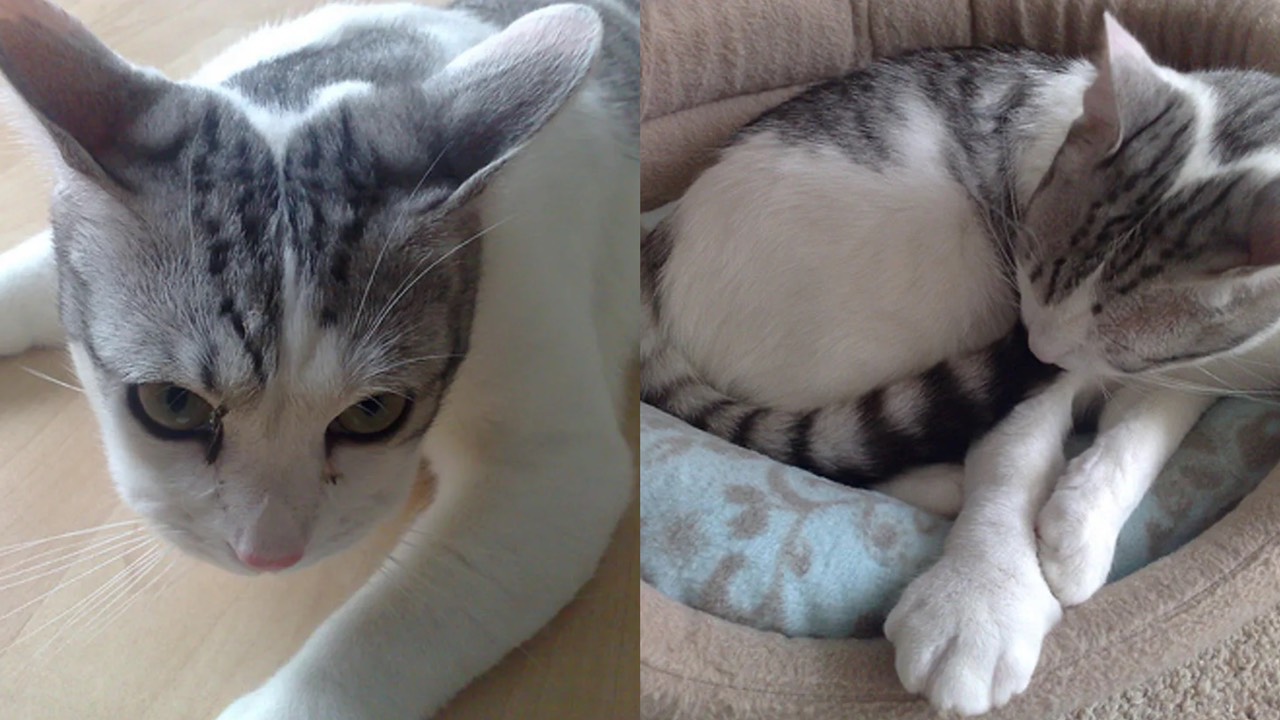

This poor kitty got stung by a bee. His right paw was almost twice the size of his left paw. Yes, cats can get allergic reactions when they get stung by bees, wasps, yellow jackets or hornets.
If a cat gets stung by a bee, he might show signs of swelling, pain in the muscles around the affected area, vomiting, fatigue, fever and shock (respiratory distress). When a cat is experiencing respiratory distress, his tongue turns blue, Welts appear throughout the body, face starts swelling, or heart rate and breathing become rapid. If you see one of the above symptoms, you should take your cat to the vet asap.
Don’t panic when your cat is stung by an insect, You can follow the steps below to treat your cat:

1. Approach your cat gently and quietly so you will not startle the cat if he is already anxious and nervous. Calmly and softly talk to the cat, so he knows your presence.
2. If the stinger is still embedded in the skin, do not squeeze or rub it or try to remove it with your hands because you may break the stinger and release more venom into the skin. Use a credit card or dull side of a butter knife to scrape it out.


3. If the stung area starts swelling, after the stinger is removed, you can ice down the area to alleviate the swelling.
4. If the cat is experiencing a severe allergic reaction, take your cat to the vet and your vet will administer a cat specific antihistamine shot to possibly reduce the allergic reaction.
image via Wary Meyer, drew anywhere, pinkhippodesign
Popular Stories
Related Stories